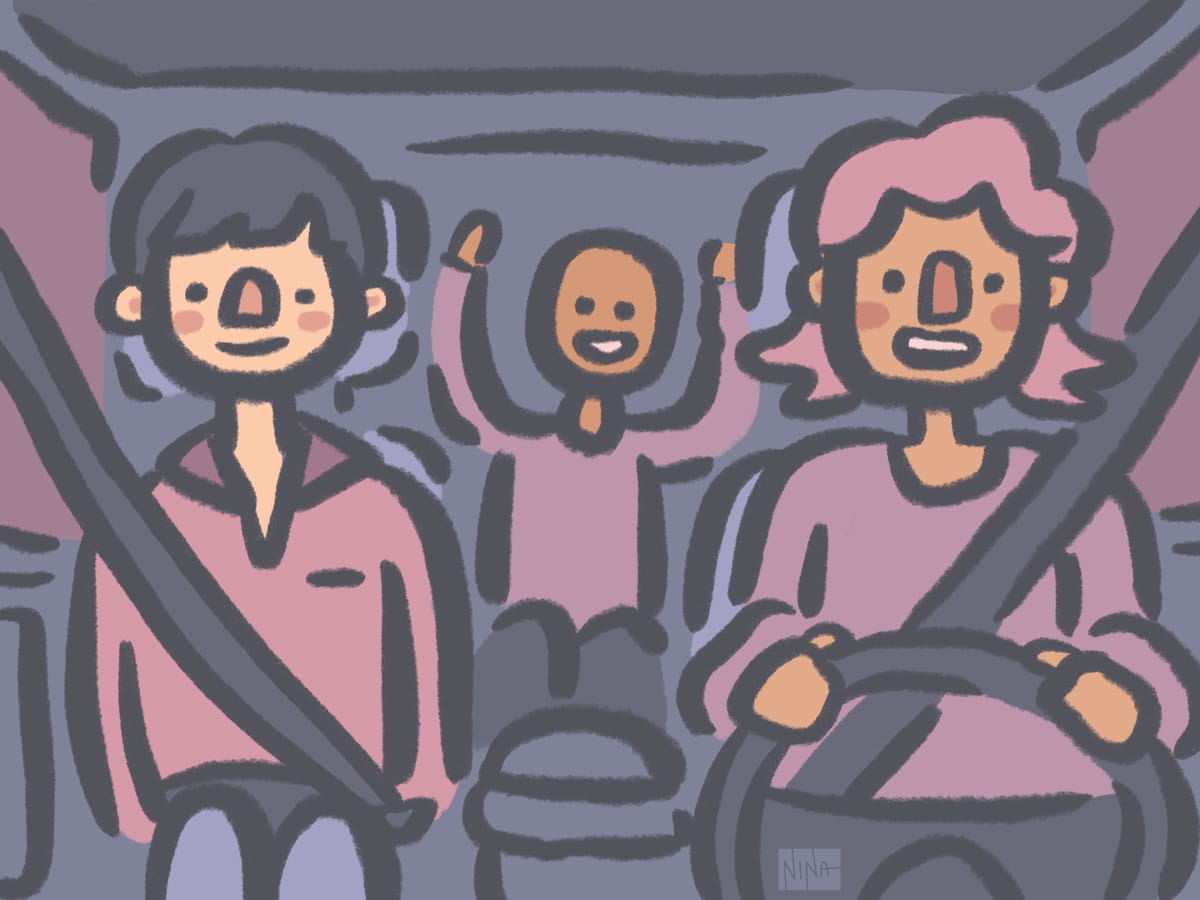Why I Don’t Wear Seatbelts
Managing Opinion Editor Tapti Sen ’25 reflects on her indifference to seatbelts, and its unexpected role in preserving her cultural identity as a Bangladeshi in America.

I don’t wear seatbelts. Or — so I don’t give readers the wrong impression — it’s less that I actively choose not to wear seatbelts and more that I consistently, inevitably forget to wear them.
The reason for this is simple: for most of my life, I didn’t have to wear them. In my home country, Bangladesh, a seatbelt is like an appendix: you know that it exists in principle, and you might even be aware of its presence from time to time, but functionally, you have no use for it. Usually, the people in the driver’s and passenger’s seats do wear them — mostly to stop that horridly incessant beeping — but even they often fasten their seatbelt behind their body because comfort is of utmost necessity, of course, when driving.
And so, throughout my childhood, I never wore a seatbelt. And because this was the normal way of life for all Bangladeshis, I never came to realize how abnormal my notion of car safety was until I came to the U.S. as a teenager, stepped into a friend’s parent’s car, and was reminded, as if I was a child, to put my seatbelt on.
This event has occurred over and over: each time I get into the car of anyone outside of family, I am reminded to put on my seatbelt — escalating to the point that my friends learned to assiduously verify this fact each time we were in a car together. Keys? Check. Wallet? Check. Tapti put on her seatbelt? Check.
This, long after I feel that I have integrated myself into American culture relatively well, has been the longstanding remnant of my South Asian habits. In many ways, I feel that I can “pass” relatively well as a native — my accent’s relatively “natural,” my way of dressing reassuringly “normal” (although you would not believe the looks I get when I wrap my hair in a headscarf for bad hair days) — this, to many people I know, remains one of my only standouts of foreignness.
This winter, back home in Dhaka with my family, and perhaps more predisposed to ponderance than usual, I wondered why, despite the many ways I have assimilated, I couldn’t quite assimilate in this regard. And the answer, I’ve realized, is my mother.
Because, in the myriad of ways that I made sense of the new culture around me as a young teenager in a foreign land, it was my mother who first started my journey and led the way for me. It was her who taught me how to swipe the pass on the bus and metro when we first landed in the U.S., her who taught me the necessity of tipping, her who reminded me to say please and thank you and excuse me every five minutes since “politeness matters a lot in American culture” (this, despite being much less fluent in English than I was at the time). It was her who walked me through the different names produce had at the grocery store (bell pepper instead of capsicum was a big shocker to me), introduced me to the joyous concept of dollar stores, and encouraged me to go out and explore the city for myself.
But despite the lengths she went to ensure that her child would, at least on the surface, be regarded as “one of them,” she never had me put on a seatbelt in her car. This is less a result of her not caring about road safety (to the contrary, my mom always ensures to drive at exactly the speed limit — it’s quite impressive), and more her own habits in this regard guiding her way: seatbelts were out of sight, out of mind. And because she never reminded me to put on my seatbelt in the backseat, I never learnt to. So now, unfortunately, despite the hopes of many people around me, it’s probably been ingrained enough in my brain that I probably never will.
I don’t know why — but I have a strange sense of joy about that. Perhaps it’s reassurance, in a sense, that no matter how Americanized I’ve become in my years studying abroad, no matter how much I “pass,” I hold my cultural identity in my heart in this strange, non-consequential way.


Comments ()